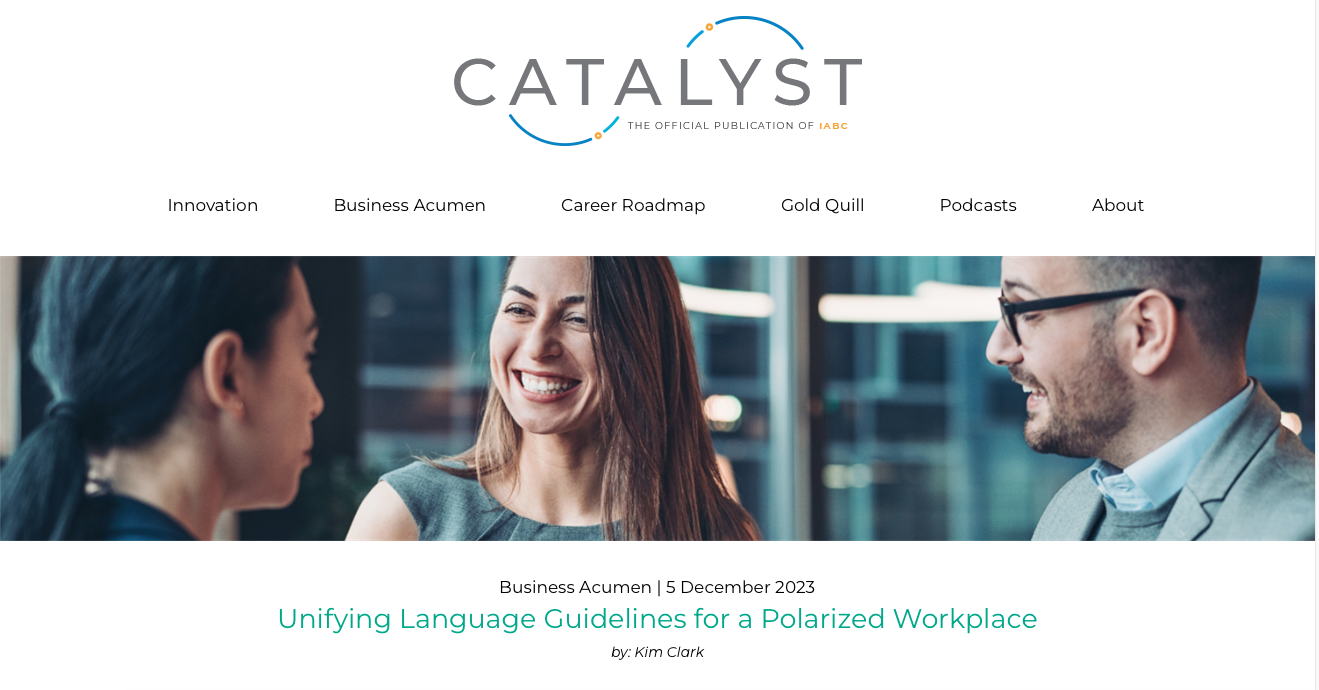|
Note: I’m the board of IABC DC Metro, and the article below was published this month in IABC Catalyst. I often share such communications discussion to my blog. By: Kim Clark
We are in a time of ongoing, compounding, significant global humanitarian crises and our organizations and clients are woefully unprepared — even after trying well-intentioned work around diversity, equity and inclusion. In a crisis, the initial reflex remains fixed on safeguarding the affected communities — making sure they are safe and protected and their pain is acknowledged. Then there are those who are not directly impacted who may not have the same historical, social context and understanding surrounding the social crisis. They may want to learn more and do something. Their pain is in feeling helpless, fearing saying or doing the wrong thing, which often leads to good people doing nothing. This is the pattern we must break as organizations and as communicators. We’ve been kicking the can down the road rather than picking it up and recycling it into something truly useful that leaves the street cleaner. The go-to statement draft speaks of how we are in solidarity with the impacted community. We may mean well and believe we’re saying the right thing but, hopefully, we’ve learned something since the summer of 2020 — the last time the world went to the streets to speak up and show up, recognizing that solidarity is incomplete and ineffective for meaningful change.
0 Comments
Your comment will be posted after it is approved.
Leave a Reply. |
AuthorI'm Eli Natinsky and I'm a communication specialist. This blog explores my work and professional interests. I also delve into other topics, including media, marketing, pop culture, and technology. Archives
July 2024
Categories |

 RSS Feed
RSS Feed